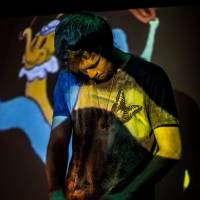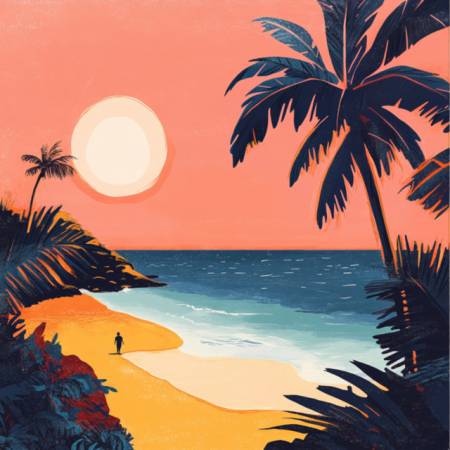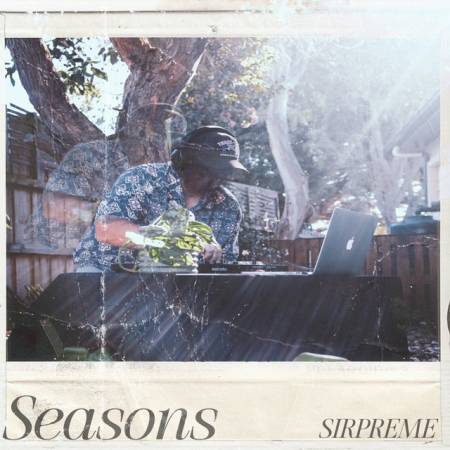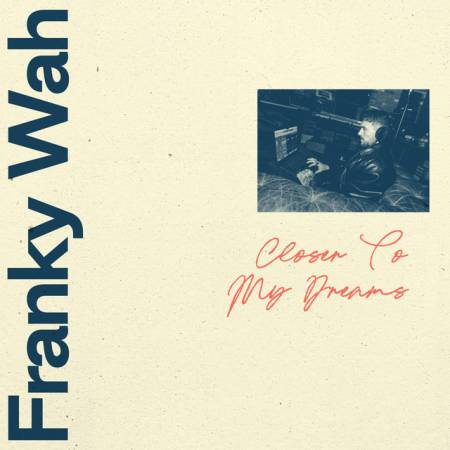I've worked in (non-music) tech most of my life and growing into what I do at Stereofox has always felt like a parallel universe. Detached, yet weirdly connected. A lot of the stuff we've been doing here since 2013 has happened remotely as everyone is scattered around the world. While I do appreciate the complete freedom and being able to work wherever whenever, I do miss that part of my Berlin life that was (semi)corporate office. The in-person part of it.
Where am I going with this? The power of IRL collaboration. Something I've felt many times and something that I dearly appreciate. The ability to capture emotions, bounce ideas, feed off each other, and most importantly - interact with the aura of the other person. Something that I firmly believe is also vital when it comes to creating music and building friendships. Our team saw that with the creation of our Bulgarian Beat Wave camp volume 1 and since then I've highly appreciated organizing such get-togethers of artists IRL.
Naturally, I was curious how some of my favourite producers overseas felt about this and it's a great privilege to talk to Shrimpnose, Cloudchord & omniboi about their experience at the first Cosmo Kuma beatcamp in LA.
Cosmo Kuma is Nettwerk's lofi community and recently they hosted their first-ever lofi beat camp, bringing 20 insane instrumentalists and vocalists to Malibu for three days to create some magic. Besides our guests today, the compilation features ROHO (read our interview here), frumhere, juniorodeo, Smile High, Somni, Sara Kawai, Joe Nora, Annie Elise, Nome Naku, Aso, Oatmello, SCayos, Ornithology, and Enluv. The release comes with a limited-edition vinyl drop for any collectors out there.
The result is a wonderful, non-linear beat-driven compilation that's going to take your mind off any stress going on.
Stay up to date.
New music and exclusive updates in your inbox weekly.
I've been listening to instrumental beats (let's use this as the wind umbrella of genres) for over a decade and to be frank, a lot of the stuff going on in the community has been rather saddening. That being said, it is great to see artists like these to try and build that actual real-life experience, build connections with fans, and tell a story as opposed to the endless amount of same-sounding beats with boring artworks people have been releasing in recent years.
That's exactly what we all need and what we've been trying to do ever since we started covering instrumental music - talk to artists, share their stories, help people resonate with them and hopefully build strong connections.
Stream the first volume of Cosmo Kuma Presents here.
Beatcamp photos courtesy of @takeobeats.
In a community that’s historically been characterized by remote/offline work, how did collaborating together enhance the music-making process?
CLOUDCHORD: I grew up playing in bands and ensembles, so for me, it’s like riding a bike. If you get in the right mindset, IRL collabs can actually be easier than solo work.
OMNIBOI: I think collaborating in person is just a good expediter. When collaborating with somebody via email, as many doors as this opens by allowing me to work with plenty of people who live really far, it also definitely can make decisions that could be rectified in maybe 15 minutes in the studio take upwards of several days, depending on everybody's schedule.
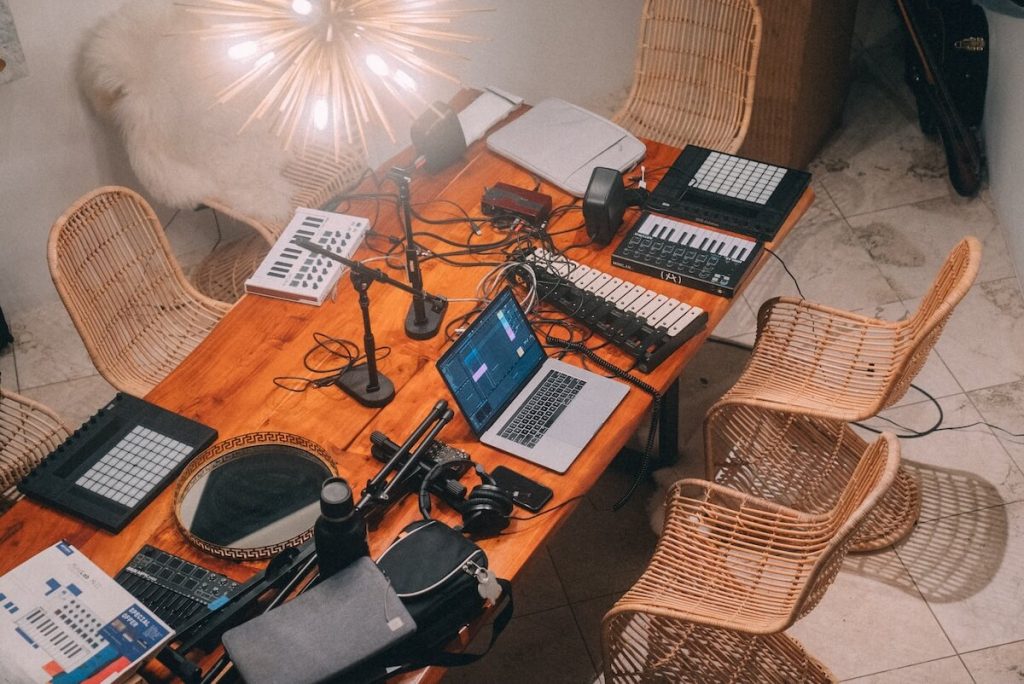
Did you set any specific rules prior to starting the whole experience?
OMNIBOI: There were no specific rules that I can remember which was actually nice. Within the first few minutes of a session, I think the whole group kind of figures out what people's strengths are and allows them to really lean into their strengths and build around them.
CLOUDCHORD: Nettwerk set up the parameters of 2 sessions a day, each with different artist combinations, and no repeats. That was cool because it kept it moving along. No time to overthink. We also knew everyone would hear our pieces at night, so it was like “better get going!”
Do you think a few days together can foster long-term friendships?
OMNIBOI: It most definitely can.
Were you nervous before embarking on this journey and spending a few days with so many people under one roof?
SHRIMPNOSE: Yes, but I’m almost always a little nervous, haha. Meeting new people, introducing myself, but having a lot of friends there helped quell my anxieties, for sure.
OMNIBOI: Not at all. I think I've written and produced with so many other artists at this point that it's always nice to get into a room with people who make music pretty differently than me. There are definitely some groups of people who are a bit less accepting/forgiving in the studio and I don't feel like this was one of those groups so there was no nervousness going into it.
CLOUDCHORD: I’ve played mandolin in the orchestra pit for classical pieces. *That* gets me nervous. This was exciting because again, I originally come from the band/ live music world.
What’s the most important lesson you took out of this experience?
CLOUDCHORD: Be willing to let others lead when it feels right.
OMNIBOI: I think it reinforced a lesson I'm always trying to learn which is that you don't need to "overproduce" an idea. Usually, if an idea is good, you can just go with it and it'll evolve with you over time, but it's okay to let that idea breathe. I think adding too much to an idea in an attempt to "save it" or "make it better" can often just waste time or even ruin the project. Working in a room with a time limit with several other producers made it so that there just literally wasn't much time or resources to OVERproduce the music which was a nice change of pace.
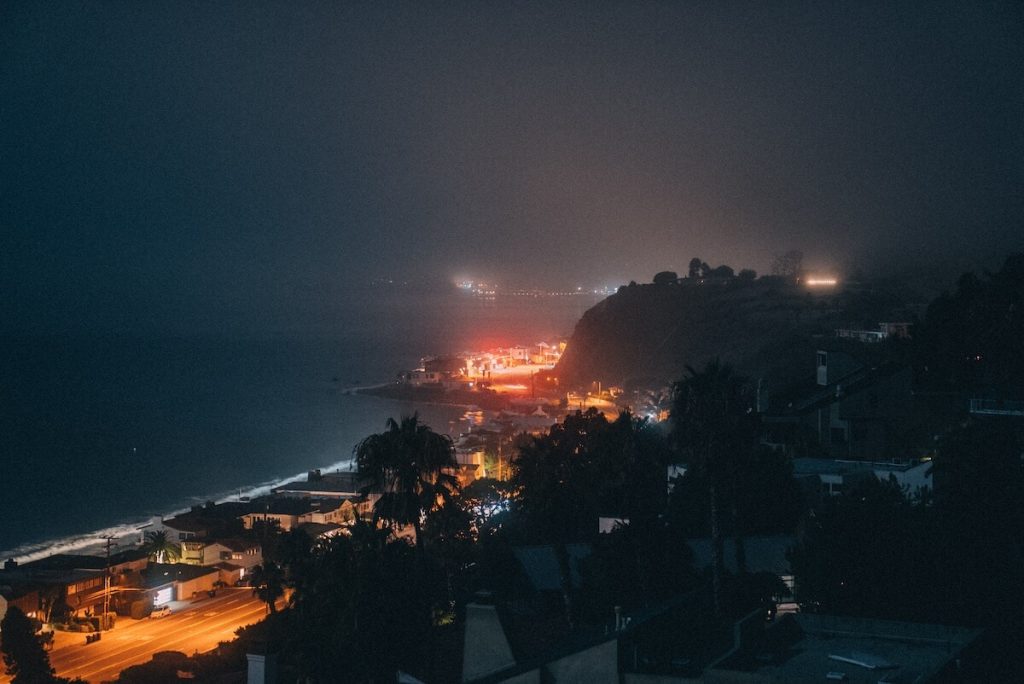
What was the hardest thing to overcome when it comes to adjusting your songwriting process?
SHRIMPNOSE: I think I usually have a bit of a hard time passing off the computer in sessions with people, so it was nice trying to exercise brevity in these sessions and open communication. I didn’t give myself too much of a chance to dive into the minutiae as much as I usually do, which helped us get a lot more sketches down than I normally would in a day.
CLOUDCHORD: I actually think the biggest challenge was to keep the engagement with each team member after the retreat so that the songs could get to the finish line. Everyone is always less present when the communication goes back to digital forms.
OMNIBOI: For me, it was just moving on. Doing a few takes and saying "This is good" instead of falling into a cycle of perfectionism is hard sometimes, but having a time limit as well as other creative minds in the room can put a stop to that.
How would each of you describe the Cosmo Kuma beatcamp experience in a sentence or two?
CLOUDCHORD: Unifying.
SHRIMPNOSE: I’d say it was a great opportunity for creativity and some friendly competition, which I feel can be beneficial if everybody is kind and respectful. Everybody trying to do their best at the same time leads to good results.
OMNIBOI: A pretty chill creative environment for a lot of artists of different disciplines to come together and make music.
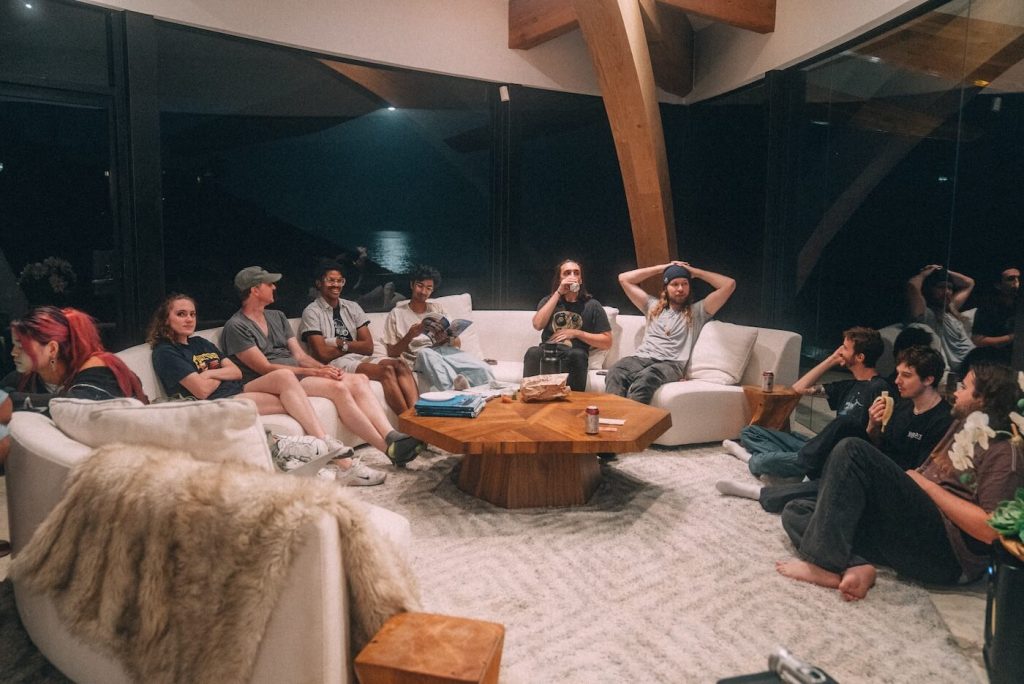
Could you share any tips or suggestions for anyone struggling with finding their voice/identity in the vast lofi space?
SHRIMPNOSE: I think lofi is a total misnomer nowadays. Most of the lofi music out is, in my opinion, quite derivative and lacks the genre-defining textures that I know most people at the camp came up using. I think people should just try to make music and see what comes out. if it’s lofi, then cool.
CLOUDCHORD: Go with your strengths. Make friends. Don’t worry about rejection. Most lofi labels are more concerned with curating their sound and not yours. I’ve been rejected multiple times from every label for having too much of my own sound. Let that build resilience, and not doubt.
OMNIBOI: Every creative space today is very vast and cluttered and saturated and really one of the only things that DOES set us apart is our individual voices. The only way to really cultivate a voice is through experience. There’s no quick way out. Make a lot of music, try new things, go to new places, work with new people and your voice will start to take shape naturally over time, just like one's sense of style or way of speaking. You can always try to force/manufacture a voice, but your own true voice will come to you organically given enough patience and experience.
How do you see the genre evolve with time?
SHRIMPNOSE: I think the definition of lofi is being bent at both ends right now. In one sense, a lot of the lofi that’s streaming very well is hardly even low fidelity, nor is it hip hop; on the other side, a lot of the producers that helped define the sound are pivoting away from lofi beats toward different BPMs and instrumentations. In years’ time, it will be interesting to see where the sound goes. All we can hope for is new innovative voices in the scene.
OMNIBOI: I think the title of "lofi" as taken from "lo-fi hip hop" has already kinda of strayed a bit far from its roots to kind of be seen as a lens or filter with which to regard other genres. I think we'll just keep seeing it used this way. I foresee "lofi" also enveloping rock music or people making "lofi" bass music. I'm not sure what this will do for the naming convention itself, but I do see it evolving this way sonically.
CLOUDCHORD: I think artists will get bored with the status quo and start to take more risks as the power of playlists evolves or dies off. I hope the big lofi playlist labels will creatively follow suit, but I’m not convinced they will. Also, don’t be afraid of melody!
How do you think listeners/community can help with the growth/ evolution of lofi music?
OMNIBOI: I think the great majority of the time, artists within any particular genre start off as listeners OF said genre, so if the listenership and community base surrounding lofi music becomes more diverse and multicultural, that will, in turn, be reflected tonally and sonically in the genre itself as those people become creators in the space.
SHRIMPNOSE: I think informing yourself in the history of the genre - which basically goes back to the conception of hip-hop music - will provide listeners with a much deeper appreciation for the music. Additionally, I think a lot of fans of the genre don’t really connect to the artists specifically, they kind of just hit play on a playlist and zone out, which is totally understandable; but the direct interaction with the artist does make a big difference, whether it’s coming to shows or buying cassettes or just saying hi.
CLOUDCHORD: Listen to specific albums and EPs more than playlists.
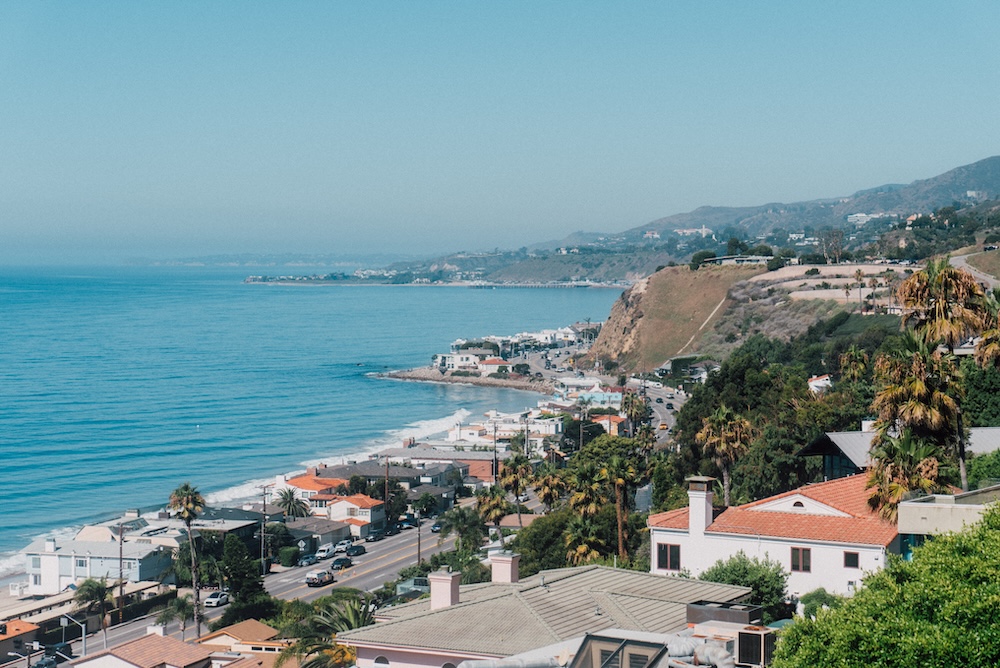
There are a lot of comments about the lack of creativity in recent years, an overabundance of beats, and heavy reliance on AI-generated music & art. Is this what would push true artistry and help those who truly love the music continue growing?
CLOUDCHORD: I think the kids who have a cracked version of Ableton and don’t know what an A-minor is may end up doing other things for a living. The true artists will stay curious, dig deeper, and adapt.
OMNIBOI: I think this is a good question. All genres overall face the cycle of going from new and niche to popular and embraced and then ultimately can be perceived to grow stagnant when the space gets really saturated, becoming more populated with emulators as opposed to innovators. As far as these elements' effects on true artistry and whether or not it would help them, I'm not entirely sure. I don't see the demoralizing of the space via oversaturation or reliance on AI as helpful to true artistry, especially in the day & age where artistry and the support of it relies so much on discoverability. I think we live in an age where the health of a musical space or community is heavily reliant on the tools and infrastructure of the space itself and if those tools and infrastructure condone or enable elements that are not nurturing or cultivating those who "truly love the music", then true artistry will suffer.
Do you think that having different types of beatmakers and multi-instrumentalists (and even personalities) helped in shaping the unique sound of Vol. 1?
CLOUDCHORD: Absolutely. You can’t have a painting of all the same subjects! For example, there were a lot of adept Ableton cats at the retreat, so I was able to just focus a lot more on guitar and lap steel playing, and not production so much.
OMNIBOI: There were definitely people at the house who brought instruments that literally nobody else in the house could even play and their voices definitely added some unique quality to the collection. Personalities, disciplines, and overall writing styles really created an eclectic sound for the record.
I love “Malibu Bossa”. Where do imagine Vol 2 happening and can we expect another “location” bossa in near future?
CLOUDCHORD: That was a fun one, and like some of the best songs out there, it came to fruition pretty quickly. I’m voting for a Tokyo bossa!
OMNIBOI: Dang. If Vol. 2 happened in SoCal again, it would be kind of funny to have a complete swap and do it in some mountain cabin. Cali is diverse enough that you could really be in a variety of different biomes, but I think it would be a nice polar opposite to go from sunny beach to snowy mountain town.
Can we expect any joint projects from people who have met at the camp for the first time?
OMNIBOI: It's definitely possible. I've met up with a few people I met at the camp just to play table tennis which was cool. No music yet, but you never know. At least now I know it's possible.
SHRIMPNOSE: Sara, Omni, my good friend Somni and I have some music coming soon that we recorded there. That was such a fun session, all three of them are so talented
CLOUDCHORD: I see this Beatcamp as the seed germination for many relationships to come.
What’s next for you in 2024?
CLOUDCHORD: Moving forward, I’m mixing it up, and dropping Caribbean house beats all summer with an amazing Haitian percussionist and singer named Jeff Pierre. It’s *truly* tropical house! Watch out for that!
OMNIBOI: I released an EP called Obscura on June 14 (stream here) and then got some more live shows booked. Releasing new music always gets me excited to perform it.


